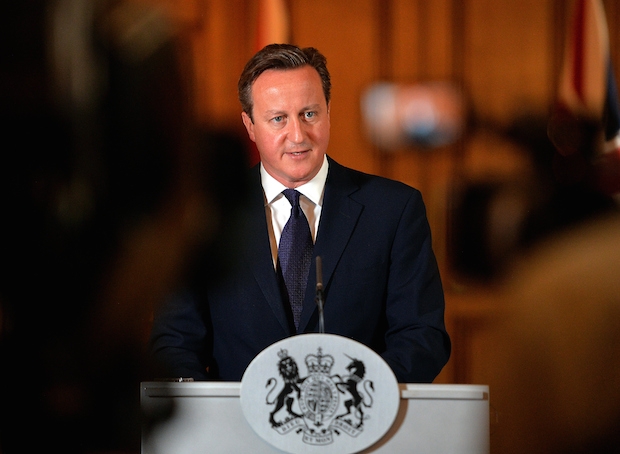Isis are playing a game with this country and America. We need to take a view about what our response to that game should be. The ‘game’ is the gradual drip-drip of beheading videos. Obviously the images are intended to spread terror and maximise the dissemination and impact of the terrorist movement’s beliefs, demands and aims. The releases are highly personalised in every way. By drawing out these atrocities and each time announcing the next victim, they force the Western media into anticipating the story and seeing it through. By helping to share the identity and qualities of each forthcoming victim, the media help to ensure that their names are known worldwide in the days before their murders, making the outrage when it happens an even more important event than such an outrage would already be.
The murderer is also now presented – and presents himself – as a notorious, indeed celebrity figure (‘I’m back’ the British terrorist who is now called ‘Jihad John’ said directly to President Obama in the second such video). This time, with the murder of a British subject (David Haines) by someone who sounds like a British subject (‘Jihad John’) the victim appears to have been forced to blame David Cameron for his death. As before, another new pattern is repeated in that after the murder video is released President Obama, Mr Cameron and other Western leaders immediately issue a condemnation of this latest atrocity. As is now also usual, the Prime Minister’s office then announces that the PM is returning to London to chair another Cobra meeting.
There is much that needs to be considered, but one serious question is this: are we certain that Isis should have the ability to dictate not just the news cycle but the political cycle too? My own sense is that in every way far too much is being said and far too much movement announced. Even if we take away the mistake of announcing operational details (should anyone really have announced that British Special Forces were on the ground?) we should consider who is manipulating whom here, as well as who has, as opposed to who should have, the upper hand.
We saw something slightly similar ten years ago when Al-Qaeda in Iraq, led by the late Abu Musab al-Zarqawi, held British and American hostages. They executed the Americans immediately. But they held on to the Brit – Ken Bigley – because they sensed that they could achieve something bigger than the murder of one man. People will remember that this hostage-taking was particularly gruesomely drawn out. There were vigils in Bigley’s childhood city and significant public appeals. Newspaper front pages and editorials blamed Prime Minister Tony Blair for Bigley’s plight and for a moment it looked like Zarqawi might even succeed in toppling, through British public pressure, a democratically elected Prime Minister.
In the end Bigley was slaughtered anyway, after being forced in his final moments to read out a message condemning Tony Blair. Zarqawi was killed not much later by two 500-pound bombs dropped by the US air force. But an interesting footnote is that when Zarqawi’s computers were found they revealed not only the usual jihadi mix of pornography and propaganda but the fact that the late al-Qaeda leader had throughout the Bigley episode been assiduously following the full breadth and depth of the UK press. Strange to think of him perhaps sitting next door to his captive while clicking through the online version of the Daily Mirror.
It will be the same with this current situation. Isis will be charting the front-pages. They will, bizarrely to many people’s minds, be scouring the web to see how their latest provocation has gone down.
We have to be wiser about all this, as government, as media, as general public and as a society. Speaking for myself, I do not want to know whether British Special Forces have gone in. If they have gone in, then I do not want to know what they are going to do. This is not a soap opera, it is about the lives of people caught up in a dreadful conflict and an effort by a terrorist group to have an impact far beyond the lands they are oppressing. It would do some good if we the public made it clear there is a limit to what information we seek or expect.
Indeed it would do some good if it were made clear to the Government that after an atrocity like this we do not want or expect grand pronouncements, rearrangements of travel or anything else. We simply want to be confident that at some point later this year or next we can open our pages and learn that a London-born jihadist has had two 500-pound bombs dropped on his head, by forces unknown.







Comments